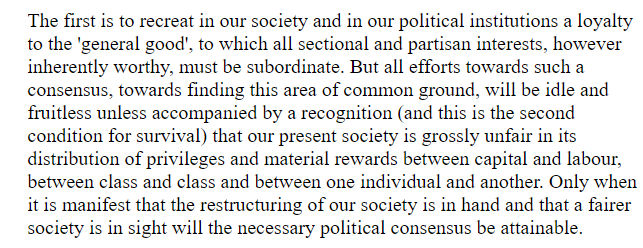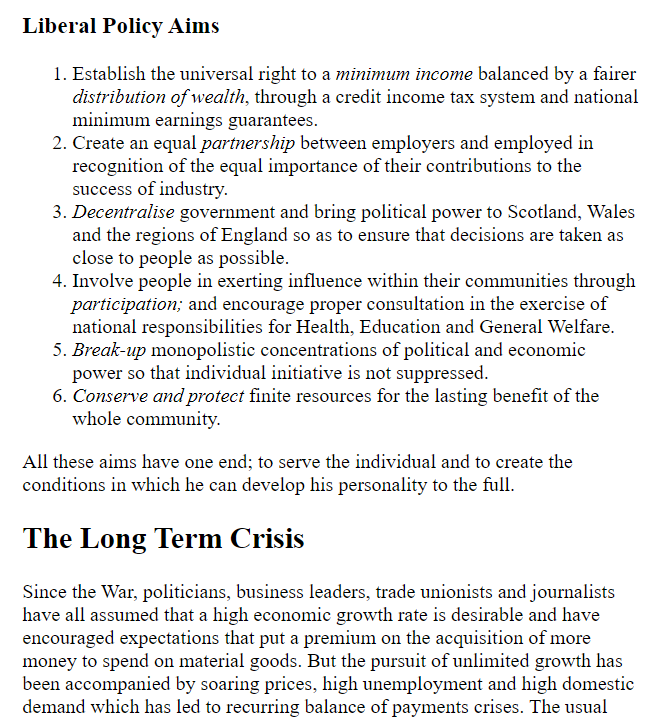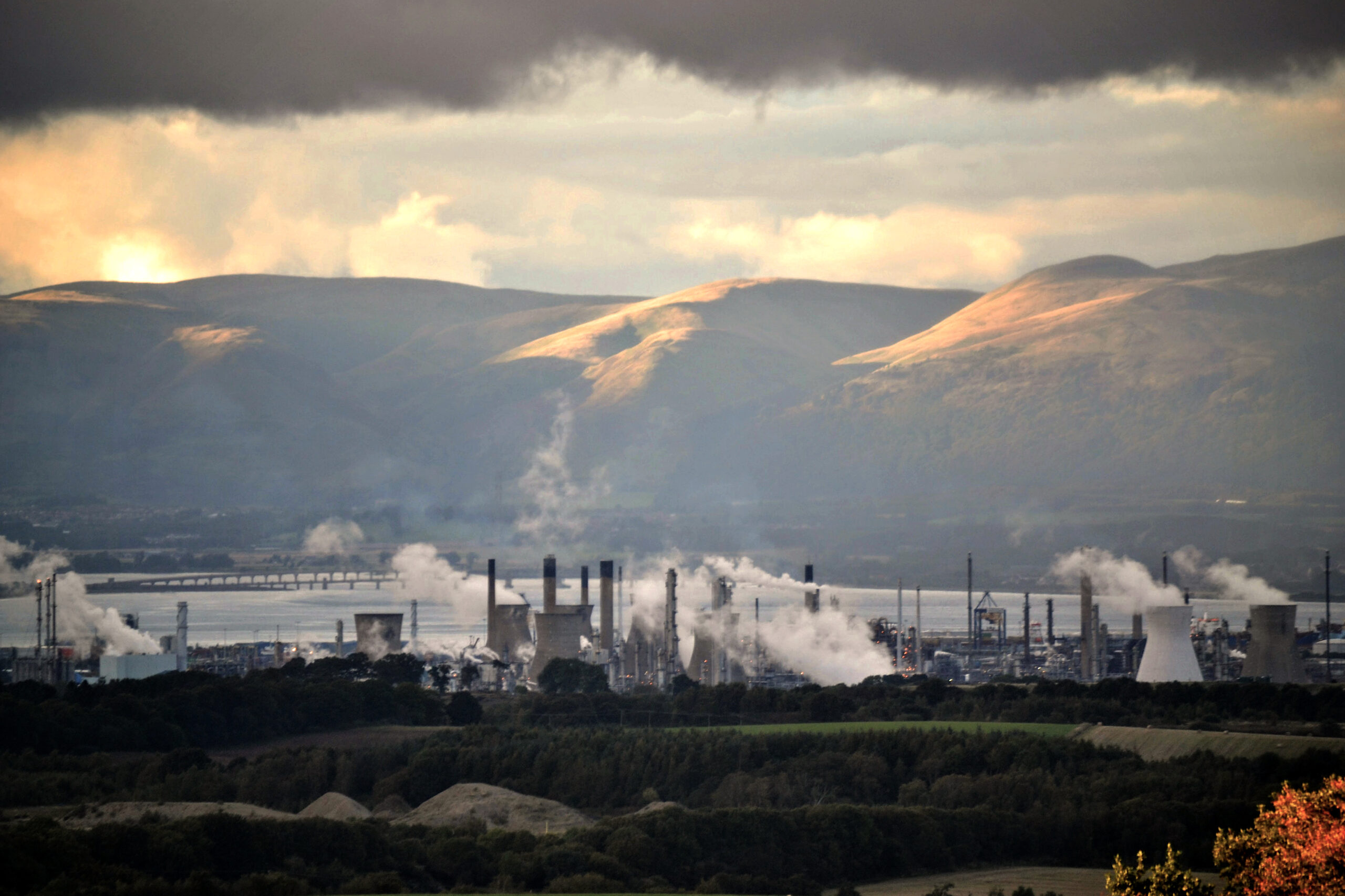The crisis of capitalism is now upon us. There are no palliative measures that will make the situation bearable.
By Craig Murray
CraigMurray.org.uk
 I have never considered myself a Marxist. I came to adult at the end of the one, 40-year-long period in the history of Western civilisation when there was a reduction in the chasm between the rich and ordinary people.
I have never considered myself a Marxist. I came to adult at the end of the one, 40-year-long period in the history of Western civilisation when there was a reduction in the chasm between the rich and ordinary people.
In consequence I believed that a tolerable society might be achieved by simple measures to ameliorate capitalism. I grew up with public ownership of utilities, natural monopolies and strategic industries, with free healthcare and medicines, free university tuition with good maintenance grants, schools under control of elected local councils, controlled fair rents including the private sector and significant public housing. We thought it would last forever.
In 1973 I joined the Liberal Party. Much of the 1974 Liberal Party manifesto I could still believe in now. The above things like public ownership of utilities and major industries and free education were not in the manifesto because they did not have to be — they already existed and were the basic structure.
The manifesto added things like a basic guaranteed income for everybody in society, compulsory worker shareholdings in those industries not nationalised, workers’ councils and a rent freeze in both public and private sectors.
I am not claiming it as a great socialist document — there were signs of right wing thought creeping in like a shift to indirect taxation. But the truth is that the Liberal Party manifesto of 1974 was at least as left as former Labour Leader Jeremy Corbyn’s manifesto. Some of its ideas were far ahead of their time — like the idea that continuous economic growth and increasing consumption as not sustainable or desirable.
Believing in essentially the same things now, I find myself on the far left — without ever having moved!
Here are a couple of extracts from the 1974 Liberal manifesto which may surprise you. This kind of language you will not hear from Keir Starmer’s Labour Party — indeed it would probably get you thrown out:


That Liberal Party is of course gone, along with the radical, anti-war, anti-unionist traditions of British liberalism. They were diluted by the merger with the Social Democratic Party and finally killed off by [former Deputy Prime Minister] Nick Clegg, [now president for global affaires at Meta Platforms], and the “Orange Bookers” who turned the hybrid party fully neo-liberal, a doctrine with almost no resemblance to the liberalism it claims to reassert.
Those hardy souls who follow and support this blog are witnessing the last knockings of the legacy of political thought that was bestowed by John Stuart Mill, William Hazlitt, John Ruskin, John A. Hobson, Charles Kingsley, Bertrand Russell, William Beveridge and many others, seasoned by Piotr Kropotkin and Pierre-Joseph Proudhon.
I don’t imagine any further generation attempting to be active in politics will develop their worldview with those thinkers as their primary motivators.
But the point of this self-absorbed drivel is that I am not a Marxist and do not come from an organised labour or socialist background or mindset.
Doctrine of Neoliberalism
 The key thought towards which I am plodding through this morass of explanation is this: I grew up in the one era when capitalism was sufficiently moderated by palliative measures that it seemed a reasonable way to conduct society.
The key thought towards which I am plodding through this morass of explanation is this: I grew up in the one era when capitalism was sufficiently moderated by palliative measures that it seemed a reasonable way to conduct society.
That ended around 1980 when the doctrine of neo-liberalism took hold of the Western world. In the U.K., that doctrine now firmly controls the Conservative, Lib Dem, Labour and Scottish National parties and is promoted relentlessly by both state and corporate media.
The result of this neo-liberal domination has been a massive and accelerating expansion in the gap between the ultra wealthy and the rest of society, to the extent that ordinary, once middle-class people struggle to pay the bills required simply to live. The situation has become unsustainable.
In short, it turns out Marx was right. The crisis of capitalism is now upon us. Neo-liberalism (another word for designing state systems deliberately to lead to incredible concentrations of wealth amid general poverty) is coming to the end of its course.
There are no palliative measures that will make the situation bearable. A radical change in the ownership of assets is the only thing that will address the situation — starting with public ownership of all energy companies, from hydrocarbon extractors like Shell and BP, through gas, electricity and fuel generators and manufacturers, distributors and retailers.
That is only one sector and only the start. But it is a good start. I frequently pass the Grangemouth refinery and am amazed that all that land, massive equipment, all those chemicals and processes, go primarily to the benefit of Britain’s richest man, Jim Ratcliffe, who is considering buying Manchester United as his latest toy, while his workers protest at another real terms pay cut. This obscenity cannot continue forever.

Oil refinery complex in Grangemouth, Scotland, 2016. (John, CC BY-SA 4.0, Wikimedia Commons)
Wars are not incidental to neo-liberalism. They are an essential part of the programme, because untrammeled consumerism requires massive acquisition of natural resources. Constant war has the helpful side benefit for the global elite of massive profit to the military industrial complex.
The cost in human misery and death is kept at a discreet distance from the Western world save for refugee flows, which meet with a response increasingly founded in the denial of humanity.
The promotion of continual war has led to the acceleration of crisis. Much of the current cost-of-living explosion can be directly attributed to the provoked, prolonged and pointless war in Ukraine, while neo-liberal doctrine forbids control of the horrendous associated profiteering of the energy companies.
There is going to be public anger come spring of a strength and reach not seen in my lifetime. The ultra wealthy and their political servants know this, and therefore strong action is being taken to forestall public protest.
The new Policing Act is one of a raft of measures being brought in to clamp down on avenues for free expression of public discontent. Demonstrations can simply be banned if they are “noisy” or an “inconvenience.” The 2 million person march against the Iraq War in London, for example, could have been banned on both grounds.
I met and talked last weekend at the Beautiful Days festival with the admirable Steve Bray; we don’t agree on everything but his public concern is genuine. He is getting used to being removed by police from Parliament Square after being specifically targeted in legislation. I reminded him — and I remind you — that the Blair government had also banned protest near the Westminster parliament.
Intolerance of dissent is a feature of modern neo-liberalism, as people in Canada and New Zealad are also witnessing — or as Julian Assange might tell you.
But in addition to legislative and state attacks on protest, the neo-liberal state is also ramping up its more subtle elements of control. The security services are continually being expanded. The media is not only increasingly concentrated, it is increasingly under direct security-service influence — the Integrity Initiative, the Paul Mason revelations and the barely disguised spookery of Luke Harding and Mark Urban all being small elements of a massive web designed to control the popular imagination.
Craig Murray is an author, broadcaster and human rights activist. He was British ambassador to Uzbekistan from August 2002 to October 2004 and rector of the University of Dundee from 2007 to 2010. His coverage is entirely dependent on reader support. Subscriptions to keep this blog going are gratefully received.
This article is from CraigMurray.org.uk.
The views expressed are solely those of the author and may or may not reflect those of Consortium News.

I’m in the US in a right wing mountainous part of California. Each September 11th is almost a second 4th of July here. US flags on cars, buildings, banners across the highway, etc. I send a letter to the editor, “Wet Blanket for 9-11”. It details many of the massive shortcoming of our nation. This year I wanted to add a note about Inter-generational Economic Mobility (Igem). Of all the developed nations, only England has a lower Igem. A kid (here and in England) is most likely (when grown) to remain at the economic level of his parents. My solution is to adjust wealth taxes each year so as to move our nation’s Wealth Over People Curve into a quarter circle. (See Greensuit.org/politicsandtaxation) However, as widely noted, the rich control the media, churches and politics. So there will be no movement away from our current “winner take all” economy.
Discussing politics at school in UK 1960s, it was suggested that: ‘read the Daily Telegraph for six months and you will be a Conservative for life’. The current Conservative Defense Minister (before the conflict started) called on allies to: “… kick Russian ass as we did in Crimea” .n war, (170 years ago), even though Great Britain aka The UK was only a bit-player with its most glorious involvement being ‘The Charge of the Light Brigade”.
At UK election 2019, Craig’s successor party the Liberal Democrats (a party once left of Centre) had a female leader who was asked if she would be willing to press the Red Button (to presage MAD for East and West). Paraphrased: Yes, yes, yes – just give it to me!
Today, in Germany, rulers Social Democrats and Greens (both supposedly anti-war and anti-nuclear) are willing to risk the same in support of the mad joker who has been willing to sacrifice his people and economy rather than accommodate the desire of a section of his country to have a degree of autonomy. Craig will know the UK allowed it for Scotland, not that that helped him get justice.
There will be no uprising. Economic pressures, control by media and democratically enacted authoritarian legislation to limit civil unrest will ensure the status quo lives on.
Thank you for this thoughtful essay. I think many of us baby boomers in the US have come to the same realization, that Marx was right about the true nature of capitalism. We cam of age in an era of “benevolent” capitalism, when its worst impulses were constrained by competition with the Soviet Union, in the same way that economic reform of the New Deal were due to the efforts and influence of an active left wing movement. That movement is long gone, pushed out of existence by Taft/Hartley and other anti-union legislation. With the collapse of the Soviet Union, the true face of capitalism was free to unmask itself. Calling the new era “the age of austerity” doesn’t begin to describe the forced decline in living standards for most USians, while the 0.01% further enrich themselves, as they drive the west, and the rest of the world, toward climate catastrophe or nuclear armageddon.
Three things. First, what Murray calls “Orange Bookers” are really closer to the historical norm of that thing we call “liberalism” (not to say neoliberalism is the same thing as classical liberalism), and the mid twentieth century is more of the exception.
Second, I think we on the “left” are largely unwilling to fight for these things, and are up against a more powerful enemy who largely is willing to fight to destroy them. And by fighting I mean this: it is more or less a given on the left side of the political equation that democracy is the only acceptable agent of change (and “democracy” means voting for the lesser evil and in an emergency the occasional permitted public protest), the logical outcome being in whatever environment, if an overwhelming and energetic majority is not on your side then you do not deserve the change you are seeking, not matter the severity. As an example, unless our technocratic overlords are able to produce a profitable magic bullet which they can use to kill climate change dead (profitable, meaning at great cost to you), then it is “fait accompli,” as they say.
Third, it is not just that war is essential to the neoliberal program. War is the tool which enforces imperialism, which is overwhelmingly essential to the neoliberal program. The west cannot be as wealthy as it is without keeping the “developing world” on its back where us “enlightened” westerners can sit on their faces.
Capitalism: Profits over People
Socialism: People over Profits.
And, as we know from recent experience, a policy of Profits over People will kill you.
Its a matter of survival.
” the legacy of political thought that was bestowed by John Stuart Mill, William Hazlitt, John Ruskin, John A. Hobson, Charles Kingsley, Bertrand Russell, William Beveridge and many others, seasoned by Piotr Kropotkin and Pierre-Joseph Proudhon.”
Yes, good stuff – I’d add Wm. Morris and Blake.
Over here in US, the entire realm of political economy has been whitewash to near invisibility.
Y’know, there’s another name for Neo-Liberalism. It’s new alright, new feudalism.
The solutions Marx posited to the problems faced during his tenure on the planet were simplistic and certainly not timely. There were too many variables he did not take into account in his ironically Christian postulates promoting generosity and good will and the abnegation of selfishness. But his analysis of the faults of capitalism were right on target as billions of deprived children see every day. Indeed, it has morphed into the monster we know today under the ironic name of neoliberalism, imposed on unwilling victims by interventionist military tactics.
Interesting that irony seems to reign.
Marx had no time for Utopians who moralized about “generosity … good will and the abnegation of selfishness”. He did his best to demonstrate scientifically that Socialism was in the ‘self interest’ of all working people (ie the vast majority of all humans, then and now). This winter will be a salutary lesson for the West’s workers to end their “generosity and goodwill” toward their exploiters.
I read Capital Volume I and my housemate is looking forward to reading Capitalism Volume III. These books are not light reading for the light-headed, but Marx’s descriptions of people’s working and living conditions ring a familiar bell. They seem to be the conditions our masters want to return us to, ordinary people fighting in the streets over scraps.
And I agree, nothing in the least sentimental about Marx, and what was a surprise was how funny he could be, and how acid-tongued when writing about people such as J.S. Mill.
Class conflict is THEE driving motor force of history.
Thankyou for your cogent and intimate expression of protest against neoliberalism and inequality.
Keep picketing and keep writing — you are not alone.
Namasté
Scary times – indeed…
Thank you Craig. I have the same experience, which is somewhat like being in a stationary train carriage and the train opposite begins to move. One gets the impression one is moving, but is contradicted by the certainty that one is not at all. It’s quite disconcerting. My politics have not moved for 25 years, and yet I am now a member of the left. I might often feel like a full-sized anarchist, given your experience of “the rule of law”, that of Julian Assange and extremisms such as the Policing Act. We live in a lawless condition where I and others are surprise thought criminals. Perhaps disobedience to unjust laws is a democratic obligation, were people able to differentiate injustice and football. Spring will tell. By the way, I value your work and send my appreciation. Best wishes and thanks. M
Sorry to be a party pooper but the social democratic interval – roughly 1945-51 – in the UK nationalised various core economic assets, including coal, steel, iron, transport, health and education, which was all well and good, and also initiated the long retreat from empire. However, this did not include intervention in the Greek civil war along with the Americans, and a loyalty oath to NATO. In short the social-democratic state capitalism was still essentially imperialist and still is. What was true of Britain was the same in Europe – a fortress policy up to the frontiers of East Germany which eventually joined NATO along with the rest of Eastern Europe.
So state capitalist political-economic policy, along with almost every other country in Europe was a fortiori part of the US imperial empire and so it remains today.